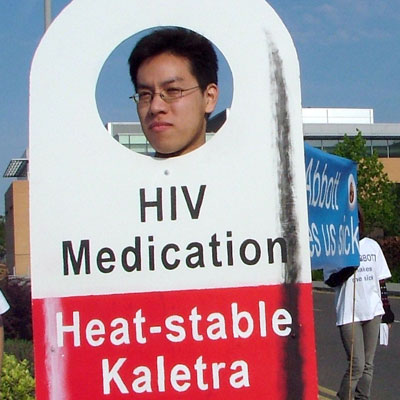 On 15 February 2015, the All-Ukrainian Network of People Living with HIV (the Network) initiated a discussion with key stakeholders about how to provide HIV treatment to all who need it in Ukraine in the years 2016 and 2017.
On 15 February 2015, the All-Ukrainian Network of People Living with HIV (the Network) initiated a discussion with key stakeholders about how to provide HIV treatment to all who need it in Ukraine in the years 2016 and 2017.
Participants included representatives of the pharmaceutical companies that produce original antiretrovirals (AbbVie, MSD, GlaxoSmithKline, Janssen), Ministry of Health of Ukraine, the Ukrainian Center for Socially Dangerous Disease Control , UNICEF, UNAIDS, AHF, SIAPS USAID and Patients of Ukraine.
“We are here to agree on what we do to save 134,000 lives before we reach crisis point,” said Dmytro Sherembey opening the discussion. “How do we stop the AIDS epidemic? We need either very cheap drugs, or to provide free access to treatment.”
The meeting presented estimated costings for treating all people living with HIV in the years 2016-2017. A deficit was determined by taking into account indicators of the National Program on Combating HIV / AIDS in 2014-2018 years (105,748 people). Thus, the needs of patients treated by the Global Fund, and those who are in occupied territories were not taken into consideration. The data on existing budgets for drugs was also included. According to the experts of the Network, the current deficit for different medicines varies between 7% to 47%.
The partners discussed the strategies and tactics to ensure Ukraine could provide access to antiretroviral therapy for everyone who needs it. Everyone agreed that if the gaps are not filled, and resources not found, Ukraine may find itself in a deep epidemic. Specific actions were proposed to reduce the cost of drugs – a direct price reduction, optimization of schemes, donations and others.
The potential of making some high-cost generic substitutions of patented antiretroviral drugs were explored. This would need to be done through the use of TRIPS Agreement “flexibilities” including compulsory licensing.
The participants agreed to establish more stable and meaningful dialogue between the pharmaceutical companies and the Ministry of Health, and expressed hope for close cooperation. The representative of AbbVie and the Association of Pharmaceutical Research and Development Vitaliy Gordiyenko proposed strategic long-term contracts (framework agreements), regular meetings on free goods and individual negotiations with pharmaceutical companies.




